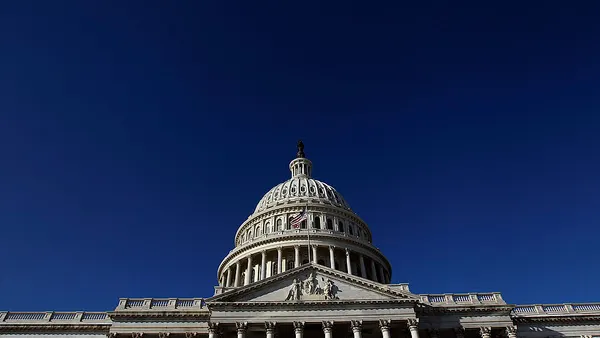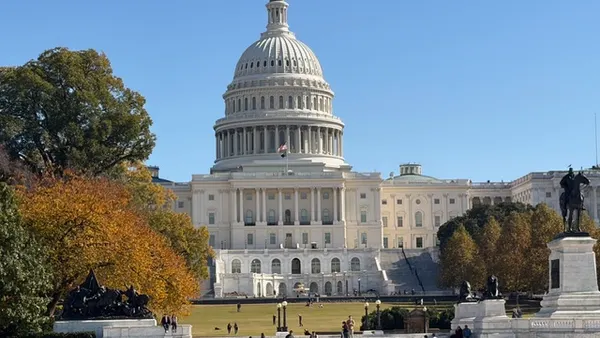Dive Brief:
- UnitedHealth is forming a new board committee to “monitor and oversee financial, regulatory and reputational risks” as the healthcare juggernaut tries to improve its standing with lawmakers, regulators, investors and the U.S. public.
- The “public responsibility committee” will “provide an additional layer of governance,” UnitedHealth said in a securities filing on Wednesday. The committee’s key responsibilities include underwriting and forecasting, regulatory relationships, reputational matters and mergers and acquisitions — all areas for which UnitedHealth has been in the public eye.
- Michele Hooper, who’s served on UnitedHealth’s board since 2007, will step down as lead independent director to chair the committee. Hooper, who will remain a director, will be replaced as lead independent director by F. William McNabb, the former CEO of investing firm the Vanguard Group who has served on UnitedHealth’s board since 2018.
Dive Insight:
UnitedHealth has dealt with crisis after crisis this year, including criminal and civil investigations by the Department of Justice, public animus over its business practices and an unexpected uptick in medical costs derailing profitability forecasts. That’s on top of a massive cyberattack and the killing of its top insurance executive last year.
UnitedHealth’s stock has taken a serious hit amid the challenges. Despite some recent help from Warren Buffett — Berkshire Hathaway took a $1.6 billion stake in UnitedHealth during the second quarter, spurring some broader investor enthusiasm — UnitedHealth’s stock is still down more than 40% year to date.
UnitedHealth’s value has plummeted amid dogged operational and reputational trials
Ameliorating regulatory and reputational hazards is top of mind for UnitedHealth’s new CEO Stephen Hemsley, who took the reins at the Minnetonka, Minnesota-based company this spring. During a call with investors in July, Hemsley said now is a time for change and reform at UnitedHealth, including a forging a more transparent relationship with regulators and the American public.
However, UnitedHealth has faced criticism for its aggressive strategy to silence detractors, including suing outlets that publish unflattering investigations and keeping doctors that censure the company from joining its insurance networks.
UnitedHealth is also funding favorable research and lobbying in a bid to control the narrative around Medicare Advantage, according to Stat reporting. MA is historically one of the company’s most lucrative business lines, but one that’s faced notable turmoil amid rising costs and policy changes from Washington that are dampening profits.
The new committee will have its work cut out for it in repairing UnitedHealth’s embattled relationship with regulators. Along with the DOJ investigations, which center around the company’s government billing practices and anticompetitive overlap between its health insurer and healthcare delivery businesses, UnitedHealth is currently being sued by the Federal Trade Commission for allegedly inflating the cost of insulin in the U.S.
Two influential Democrat senators are also investigating UnitedHealth following reports that the company is restricting care for nursing home residents to reduce hospital transfers and subsequent medical costs.
Regulators and lawmakers have also aired concerns about UnitedHealth’s steady pattern of M&A — an area also under the new committee’s purview.
For years, UnitedHealth has quietly snapped up physician practices across the U.S. and announced big-ticket deals, including in home health and healthcare technology, that have solidified its status as a colossus not just in healthcare. UnitedHealth, which is No. 3 on the Fortune 500, has grown to operate the largest private insurer in the U.S., a major pharmacy benefits manager, a nationwide physician network along with a spate of other businesses.
Just last week, UnitedHealth closed its $3.3 billion acquisition of home health and hospice provider Amedisys after reaching a divestiture plan with the DOJ that some antitrust experts said will not protect competition.
The new committee will also oversee underwriting and forecasting, two fundamental areas of health insurance operations where UnitedHealth has failed this year. The company’s insurance division UnitedHealthcare significantly underestimated accelerating medical trend when it priced its plans for 2025, and is being slammed with higher spending as a result.















